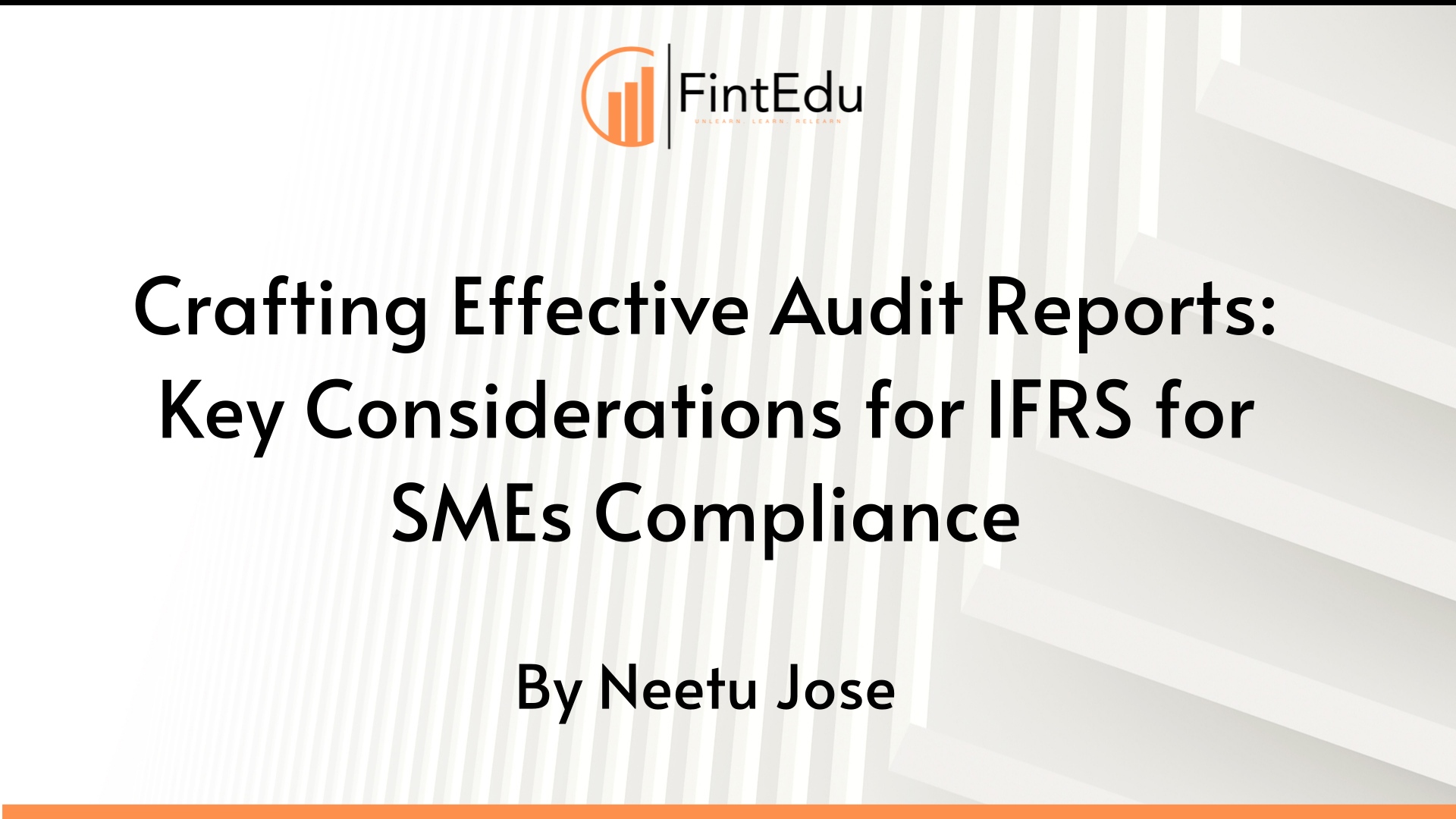LISTEN TO THIS ARTICLE
In handling the complexities of financial reporting under the International Financial Reporting Standards (IFRS) for Small and Medium-sized Enterprises (SMEs), crafting an effective audit report requires a strategic approach. Understanding IFRS for SMEs, assessing its impact on your organization, and ensuring compliance with regulatory standards are paramount. This article explores key points to consider when drafting audit reports under IFRS for SMEs, providing guidance to streamline the process and promote transparency in financial reporting.
1. Scope Assessment: Understand the scope of IFRS for SMEs to ensure your company falls within the criteria.
2. Key Differences: Identify the major variations between Full IFRS and IFRS for SMEs, particularly focusing on areas like recognition, measurement, and disclosure requirements.
3. Impact Assessment: Conduct a thorough impact assessment to gauge the effect of the transition on financial reporting, tax implications, systems, processes, and resources.
4. Regulatory Compliance: Ensure compliance with regulatory requirements and consider any legal implications.
5. Understanding Requirements: Familiarize yourself with the specific note disclosure requirements outlined in IFRS for SMEs.
6. Organizing Information: Structure notes to accounts clearly and systematically, covering areas such as material accounting policies, financial risk management, and related party transactions.
7. Disclosure of Judgments and Estimates: Clearly articulate significant judgments and estimates made in the preparation of financial statements.
8. Compliance and Consistency: Ensure that notes to accounts are consistent with the financial statements and comply with relevant accounting standards.
9. Clarity and Transparency: Aim for clarity and transparency in disclosures, using plain language and avoiding technical jargon where possible.
In conclusion, preparing audit reports following IFRS for SMEs demands meticulous attention to detail, adherence to regulatory requirements, and a commitment to clarity and transparency. By focusing on scope assessment, understanding key differences, conducting impact assessments, and organizing information effectively, auditors can navigate the complexities of IFRS for SMEs with confidence. Embracing these key considerations not only ensures regulatory compliance but also enhances the quality and reliability of financial reporting, building trust and transparency within the business ecosystem.
Disclaimer: Content posted is for informational and knowledge sharing purposes only, and is not intended to be a substitute for professional advice related to tax, finance or accounting. The view/interpretation of the publisher is based on the available Law, guidelines and information. Each reader should take due professional care before you act after reading the contents of that article/post. No warranty whatsoever is made that any of the articles are accurate and is not intended to provide, and should not be relied on for tax or accounting advice.
Contributor
Related Posts

The UAE’s tax and reporting environment is evolving rapidly, especially with the introduction of C...
Read More
Businesses often receive supplier rebates, discounts, or commercial incentives when purchasing fix...
Read More
When a business applies for a VAT refund, most of the focus is usually placed on internal compliance...
Read More